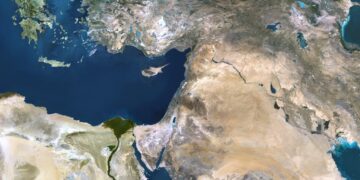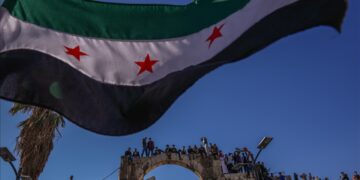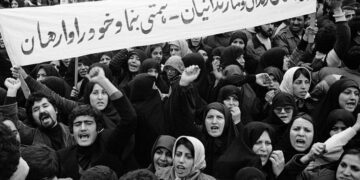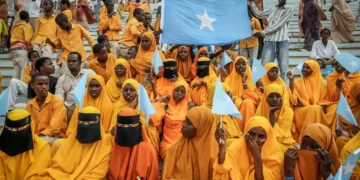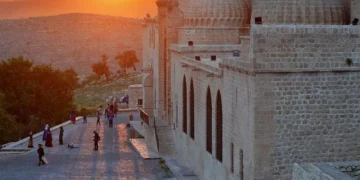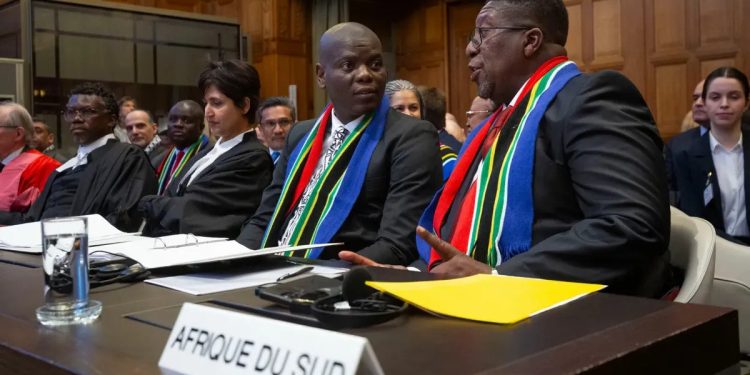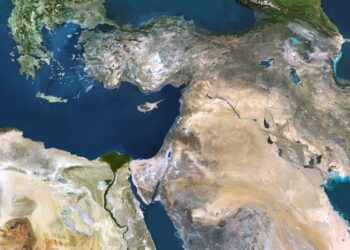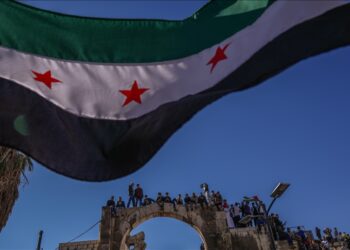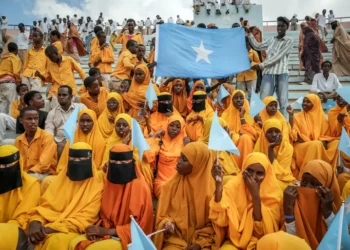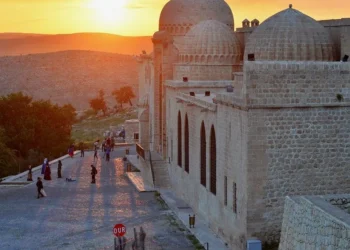Photograph: Michel Porro
The Legal Foundations of South Africa’s Genocide Case Against Israel at the International Court of Justice
Based on Article IX of the Convention on the Prevention and Punishment of the Crime of Genocide (1948 Convention), South Africa, relying on the competent jurisdiction provided by the ninth article, brought a case against Israel before the International Court of Justice (ICJ). Following the initial hearings held on January 11-12, 2024, the ICJ announced its interim decision regarding urgent requests for provisional measures on January 26, 2024, 14 days after the first hearings. According to the aforementioned ninth article of the 1948 Convention, disputes between the contracting parties relating to the interpretation, application, or fulfillment of the present Convention, including those relating to the responsibility of a State for genocide or for any of the other acts enumerated in article 3, can be submitted to the International Court of Justice at the request of any of the parties to the dispute.
According to the second article of the 1948 Convention, genocide means any of the following acts committed with intent to destroy, in whole or in part, a national, ethnical, racial, or religious group, as such: killing members of the group; causing serious bodily or mental harm to members of the group; deliberately inflicting on the group conditions of life calculated to bring about its physical destruction in whole or in part; imposing measures intended to prevent births within the group; forcibly transferring children of the group to another group.
According to the third article of the Convention, genocide; conspiracy to commit genocide; direct and public incitement to commit genocide; attempt to commit genocide; complicity in genocide are punishable acts and natural persons who commit these acts are subject to punishment under Article IV of the 1948 Convention. In the case brought before the ICJ, the respondent state is judged in terms of its international responsibility for the internationally wrongful act of genocide attributed to it. The court authorized to prosecute natural persons (in other words, individuals) for specified crimes is the International Criminal Court (ICC). The ICJ prosecutes states for their international responsibility regarding state responsibility due to an international wrongful act. Individuals are prosecuted for international criminal responsibility before the ICC.
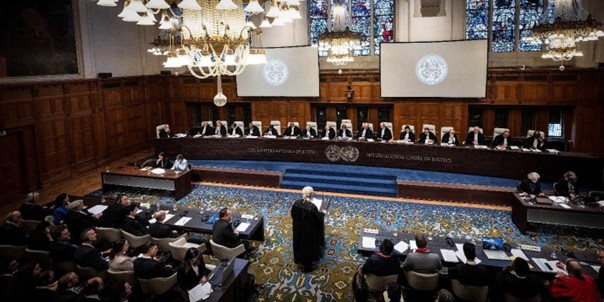
Genocide case filed against Israel at the International Court of Justice
Some of the international obligations arising from international wrongful acts are peremptory norms of international law, also known as jus cogens norms. The existence of such norms is confirmed in the Vienna Convention on the Law of Treaties. Jus cogens norms are imperative rules of international law that cannot be deviated from by any state or replaced by a subsequent general rule of international law of the same nature. The prohibition of genocide is an example of a jus cogens norm.
International obligations arising from peremptory norms of international law are obligations erga omnes, which means that each state owes them to the international community as a whole. Any state can invoke erga omnes obligations against any other state. According to the UN document A/RES/56/83, international responsibility arising from the violation of an erga omnes obligation can be invoked by any state against the state responsible for the violation.[1]
South Africa’s application against Israel in the ICJ is a submission arising from a serious violation of an erga omnes obligation stemming from a jus cogens rule, and it is based on Article IX of the 1948 Convention, which automatically confers jurisdiction and authority on the ICJ. Under this automatic jurisdiction, Israel is not required to accept the jurisdiction of the ICJ. Article IX of the 1948 Convention regarding extraordinary automatic jurisdiction has allowed South Africa to submit its application.
Interim Measures in the Genocide Case Against Israel at the International Court of Justice
On January 26, the ICJ has issued the following rulings against the State of Israel:
- In accordance with its obligations under the Convention on the Prevention and Punishment of the Crime of Genocide, in relation to the Palestinians in Gaza, Israel will desist from the commission of any and all acts within the scope of Article II of the Convention, in particular, killing members of the group, causing serious bodily or mental harm to the members of the group, deliberately inflicting on the group conditions of life calculated to bring about its physical destruction in whole or in part, and imposing measures intended to prevent births within the group.
- It will ensure that its military, as well as any irregular armed units or individuals do not commit any acts described previously.
- It will ensure that people do not engage in direct and public incitement to commit genocide or attempt to commit genocide, and insofar as they do engage therein, steps will be taken towards their punishment.
- It will take all measures within its power to prevent the deprivation of access to basic services and humanitarian assistance urgently needed to alleviate the adverse living conditions faced by Palestinians in Gaza.
- It will take effective measures to prevent the destruction and ensure the preservation of evidence related to allegations of acts within the scope of Article II of the 1948 Convention.
- It will submit a report to the Court on all measures taken to give effect to this Order within one month.
The fact that the South African State’s application was not rejected in this interim decision and that the indicated measures were ordered means that ICJ did not deny the existence of the danger of genocide. In the decision, the ICJ only announces its ruling on interim measures, while it will declare its decision on the existence of genocide at the end of the case.
The fact that the South African State’s application was not rejected in this interim decision and that the indicated measures were ordered means that ICJ did not deny the existence of the danger of genocide.
International Criminal Responsibility and the Jurisdiction of the International Criminal Court
There are two types of responsibility for acts committed under international law. The first is the international responsibility of states for wrongful acts under international law. In cases such as the case instituted by South Africa against the State of Israel for wrongful acts in violation of the 1948 Convention, the competent international court is the International Court of Justice. The proceedings here are not criminal but rather a determination of responsibility and reparations such as restitution, compensation, and satisfaction. Essentially, states do not have criminal responsibility in international law, but they have international responsibilities arising from wrongful acts under international law, which are not of a criminal nature. The second type of responsibility for acts committed in international law is the international criminal responsibility of individuals, or in other words, the international criminal responsibility of natural persons. The competent international court in this regard is the International Criminal Court. Here, individuals are prosecuted for international crimes. While the State of Israel is on trial at the International Court of Justice for its international responsibility, the competent court to prosecute individuals such as the president, prime minister, foreign minister, ministers, politicians, and soldiers for the international crimes they commit is the International Criminal Court. Indeed, in 2021, the ICC declared itself competent to prosecute international crimes committed in the occupied Palestinian territories.
On May 22, 2018, the government of the State of Palestine applied to the ICC. It was Palestine’s fourth application to the Court for crimes against humanity and war crimes committed by Israeli civilians and forces. However, three years later, on February 5, 2021, the ICC Pre-Trial Chamber, on the referral of the ICC Office of Prosecutor, ruled that the ICC has jurisdiction over the territories mentioned in Palestine’s referral to the Court. In the specified ruling, it was declared that the ICC has jurisdiction in Palestine which is recognized as a state under Article 12(2)(a) of the Rome Statute, and has the right to self-determination. Since October 7, 2023, Israeli state officials have submitted numerous complaints and applications to the ICC Office of Prosecutor, along with evidence, regarding severe and serious international crimes committed in Gaza. These crimes include genocide, crimes against humanity, war crimes, and crimes of aggression as defined in the Rome Statute. Currently, there are no ongoing cases initiated by the ICC Office against Israeli state officials for the mentioned crimes. However, investigations are continuing.
According to the established rule of attribution in the international responsibility of states, first, the conduct of any state organ is considered an act of that state under international law, whether the organ exercises legislative, executive, judicial, or any other functions, whatever position it holds in the organization of the state, and whatever its character as an organ of the central government or of a territorial unit of the state. The second, an organ includes any person or entity which has that status in accordance with the internal law of the state.[2] Hence, there are individuals who have created the threat of genocide whose existence was not denied in the ICJ’s interim decision. According to the mentioned attribution rule, the individuals committing the acts attributed to the state in state responsibility are natural persons, namely individuals. Therefore, those persons representing the State of Israel should also be prosecuted in the ICC.
References
[1] Hakkı Hakan Erkiner, Devletin Haksız Fiilden Kaynaklanan Uluslararası Sorumluluğu, Seçkin Publishing, Ankara: 2023; UN Responsibility of States for Internationally Wrongful Acts, Article IV, see p. 287.
[2] Hakkı Hakan Erkiner, Devletin Haksız Fiilden Kaynaklanan Uluslararası Sorumluluğu, Seçkin Publishing, Ankara: 2023; UN Responsibility of States for Internationally Wrongful Acts, Article IV, see p. 277.








